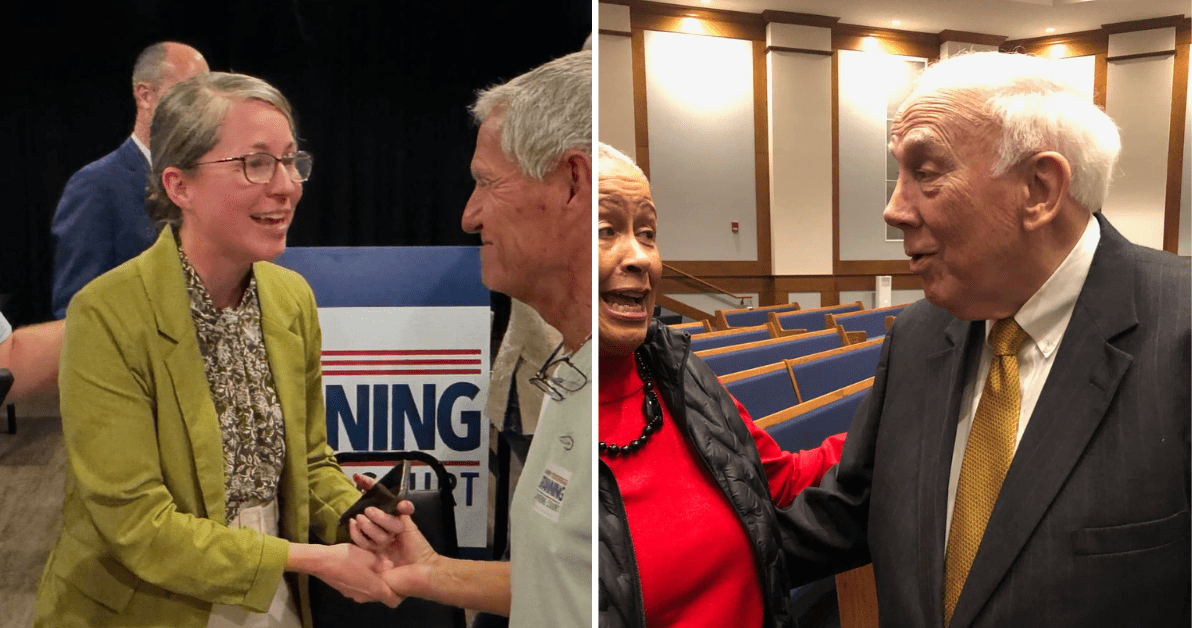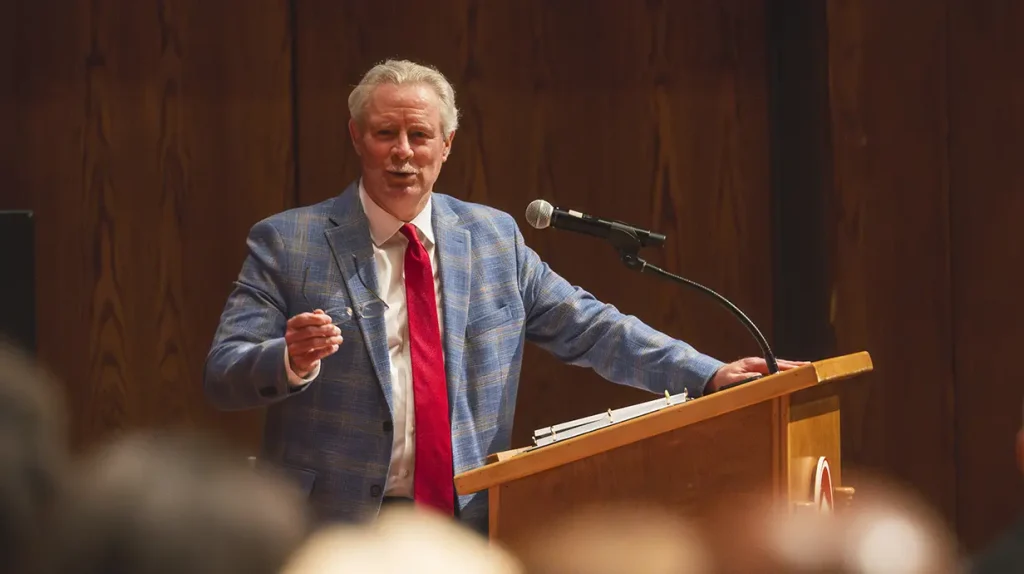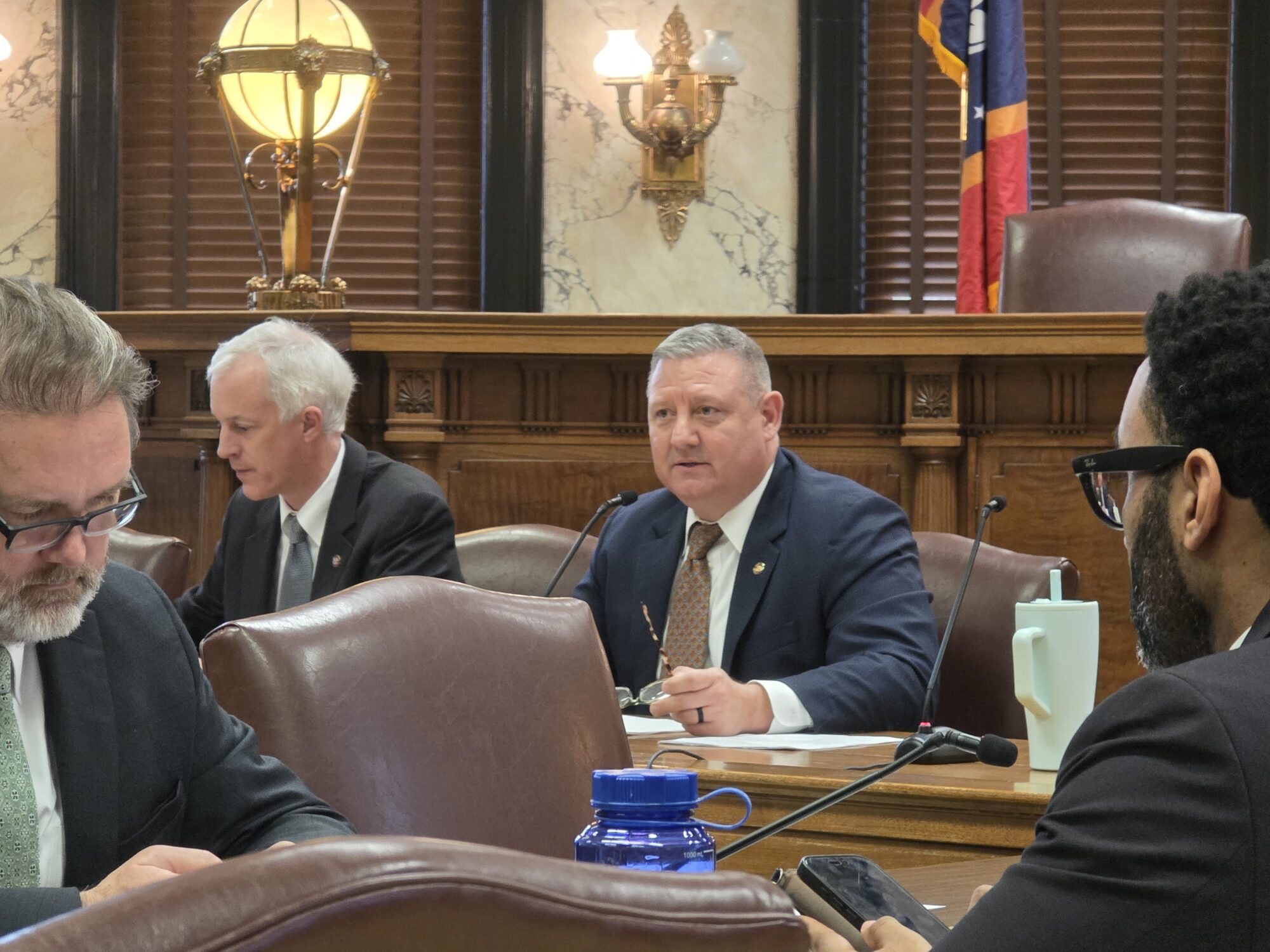
The residency challenge was first brought before the Republican State Executive Committee by DeSoto County resident Matthew Barton. Neither of Gunasekara’s opponents raised the challenge.
Brandon Presley is vacating his seat on the Public Service Commission to seek the Governor’s mansion. Next to the governor’s matchup, the race to replace Presley as the Northern District’s Commissioner may be one of the more interesting political contests of the 2023 election cycle.
There are three Republican candidates vying for the spot, including State Representative Chris Brown, City of Tupelo employee Tanner Newman, and former chief of staff at the EPA Mandy Gunasekara. There has already been a defamatory cartoon of candidate Gunasekara circulated, and now, litigation over her candidacy. It’s only March.
Judge Lamar Pickard heard arguments today on whether Gunasekara would be eligible to run. A challenge to her candidacy was first brought before the Republican State Executive Committee by DeSoto County resident Matthew Barton. Neither of her opponents, Brown nor Newman, raised the challenge. Neither appeared in court today.
Barton, who is a candidate for DeSoto County District Attorney, contended first to the Republican Party governing body in February that Gunasekara has not been a citizen of Mississippi long enough to seek the office. The Republican State Executive Committee disagreed, which prompted Barton to appeal the decision.
Judge Pickard, who retired in 2018 after over two decades on the bench in Copiah County was appointed as a special judge to hear the appeal. Pickard has presided over a number of high-profile election challenges over the years.
And so, the stage was set for Wednesday’s hearing. Mississippi law imposes the same standards on a candidate for Public Service Commissioner as on the Secretary of State. The candidate must have been a citizen of the state for five years preceding the date of the election. This year’s election is November 7th, meaning that candidates for PSC needed to be citizens by November 7, 2018.
Gunasekara Says She Established Mississippi Domicile Before Cut Off
Dating back to the 1968 case of Stubbs v. Stubbs, the Mississippi Supreme Court has held that “the foundation of domicile is intent.” The Stubbs Court held that the “declarations of the party himself are most important” in determining intent to be domiciled here.
While this legal standard has been often repeated by courts, there are a great number of other factors that have also been considered. Among those factors are homestead exemption—which creates a “rebuttable presumption” of residency—, home purchase, and voting records.
Gunasekara is from Mississippi, seventh generation. But her background includes multiple stints in Washington, D.C. in various roles with Congress and the Environmental Protection Agency. In 2017, she received an appointment from the Trump White House to be a senior advisor at the EPA.
Gunasekara contends that she began developing plans to move home to Mississippi in early 2018. Her parents bought a house adjacent to their own in Decatur in August of 2018. Gunasekara says this home was intended for her and her family. She claims that while renovations were ongoing, and in preparation for her husband and children to join her in Mississippi, she moved back into her childhood home with her parents.
In testimony today, she explained that:
▪ In January of 2019, she obtained a Mississippi driver’s license and registered to vote here.
▪ In February of 2019, she registered a non-profit business in Mississippi.
▪ In the summer of 2019, her family moved into the home that they had been renovating in Decatur.
▪ That fall, her children began public school in Mississippiand had been continually enrolled in Mississippi public schools since.
▪ In March of 2021, the Gunasekara family bought a home in Oxford and moved from Decatur.
▪ She had filed income tax returns for tax year 2019 and every year since in Mississippi.
Barton’s Arguments Against Gunasekara’s Residency
But attorneys for Barton argued that these steps were insufficient to establish intent to be domiciled in Mississippi on or before November 7, 2018. Counsel, sometimes intensely, questioned Gunasekara on the stand on a wide variety of facts intended to cast doubt as to when she established residency.
Barton’s attorneys emphasized that the Decatur home purchased in August of 2018 was actually purchased by Gunasekara’s parents, though they conceded that the deed was eventually transferred to her. Additionally, they pointed to:
▪ The fact that Gunasekara had maintained ownership of a home in D.C., including claiming homestead exemption on that home through 2021. Gunasekara contended that this was done by her mortgage company automatically.
▪ Gunasekara voting in a D.C. election on November 6, 2018, one day before she would have had to establish residency in Mississippi to run for PSC. Gunasekara argued that this was a hyper-local election, similar to a homeowners’ association, and that she had voted in support of a friend.
▪ Gunasekara filing her income tax return in D.C., and not Mississippi, for tax year 2018.
▪ Gunasekara accepting an appointment from the Trump White House to serve as EPA Chief-of-Staff in 2020, a role she maintained until President Biden’s inauguration in January of 2021. Gunasekara indicated that she was commuting back-and-forth to Mississippi during this period.
▪ Gunasekara and her husband refinancing their D.C. home in 2020 and indicating on the mortgage application that the D.C. home was their primary residence. Perhaps as a point of conflicting statements, the same mortgage application asked about other owned property and the Decatur property was identified. Gunasekara’s husband indicated the Decatur property was a second home, but Gunasekara actually indicated the Decatur property was her primary residence.
What’s in It for Barton?
Counsel for Gunasekara called Matthew Barton to the stand and attempted a series of questions about his motives for filing the challenge, whether he had been put up to doing so, or received financial support for doing so. Judge Pickard allowed some sparing questions, but overall ruled that those questions were not relevant to Gunasekara’s domicile.
Barton himself has signaled that his challenge to Gunasekara is as much about his opponent for District Attorney as it is the PSC race. There is a long history, but in short, Barton has been campaigning on the idea that current DeSoto County District Attorney Robert Morris does not meet the residency requirements for their race. He’s used his challenge to Gunasekara to raise the profile of his complaints against Morris in public statements.
What’s Next?
Judge Pickard did not rule today, indicating he wanted to review record of the Republican State Executive Committee’s hearing on the matter first. His interactions and comments were limited throughout the proceeding. He did show some interest around residency requirements for Gunasekara’s kids going to school in Washington, D.C. in the 2018-2019 school year. He also asked questions surrounding her November 6, 2018 vote in D.C.
If I were to wager, knowing what I know about how nebulous the caselaw surrounding residency is and how resistant courts are to inject themselves into political contests, I would wager that the Court will uphold the Executive Committee’s decision—that Judge Pickard will rule that Gunasekara’s stated intent to be a Mississippi resident in 2018 had enough surrounding facts to be credible. That said, the wager would not be one of extraordinary confidence. Early in my law practice, I learned courts often do unpredictable things.
We will see.










